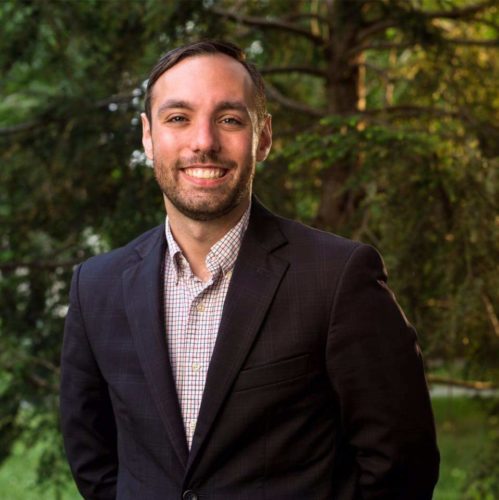 Teghan Simonton - The Yellow Jacket
Teghan Simonton - The Yellow Jacket When James Craig launched his campaign for state senate last spring, his reasoning was simple.
Craig describes himself as having a “chip on his shoulder,” after growing tired of town hall meetings and conference calls trying to fix the region’s troubling opioid overdose rates.
No one was attacking the problem the right way, he said. No one had really lived that kind of life. The meetings were “publicity stunts,” he said, “with no real movements.”
Then there was Craig, who lost his mother, his brother and his aunt to opioid addiction. He felt he had a better understanding of the issue.
“The poverty I endured, the fact that I was homeless, the fact that I grew up in a rural poverty–which is very different from an urban poverty–the fact that you know, you lived in a household where oftentimes you had to become your own adult,” said Craig. “That shaped my entire life, my entire existence.”
His background framed everything from his policy platform to his campaign strategy: he rallied for economic revival, healthcare reform, the legalization of recreational cannabis.
Craig said it’s an “absolute must” that insurance companies cover at least 90 days of inpatient rehabilitative care for addicts, and a grant program should be created to support nonprofits serving people in recovery. He also called for stronger prescription guidelines to prevent the overprescribing of opioid pills, greater funding for rural schools and stronger support for stable jobs. He said, in the end, it all connects.
“We really just need to bring up the standard of living for people living in southwestern Pennsylvania,” Craig said. “The fact of the matter is, I think a lot of people have lost hope in this region.”
Craig decided to get involved with politics after his brother’s death in October 2016. He was a real estate lawyer, and after his wife finished graduate school at Chatham University in Pittsburgh, Craig said it was time to get more involved and change the system.
But after some of the most stressful months imaginable, Craig came up short against the Republican incumbent Camera Bartolotta, who has served four years in the state senate. Without the major funding that comes with an established political reputation, Craig’s campaign took a grassroots approach–knocking on doors, handing out flyers, making dozens and dozens of cold calls.
“It is just exhausting,” he said. “It’s exhilarating. It’s frustrating. You have anxiety as the same time as excitement. You never know what’s going to happen, and it’s literally a 24-hour a day job.”
As the election approached, though, his campaign became tainted with scandal, when at least 400 forgeries were discovered on his ballot petition. While Craig claims not to have known how this happened, the news cycle was dominated by accusations of dishonesty. His opponent said in a statement that the forgeries were an “immeasurably offensive to those that participate in the electoral process.” Beaver County began an investigation into the fraudulent signatures, which hasn’t yet reached a conclusion; though, Craig’s attorney told the Pittsburgh Post-Gazette that Craig was a “witness, not a target,” in the inquiry.
For Craig, this was an aspect of campaigning he hadn’t anticipated.
“What I experienced was not a debate of ideas,” he said. It was more a competition of who could raise the most money and best get their name out. “Believe it or not, I’m really a trustworthy and honest guy, though the media throughout this campaign would’ve made to believe that that wasn’t the case.”
Still, Craig doesn’t think the scandal really contributed to his eventual loss, instead citing an extremely high voter turnout on the Republican side that his team hadn’t anticipated. And despite his loss, Craig said his work isn’t complete. He saw a lot more in the political realm that he didn’t like: divisiveness, scorched-earth strategies and special interest groups bordering on corruption.
Not a lot is certain in Craig’s future at the moment. He said he has been approached by separate officials to consider running for four different offices in various levels of government–he declined to say which offices–but no decisions have been made. Now that a week has passed since his loss, Craig said he is “fired up” and ready to continue working on the political scene.
Still connected to his brutal past and reflective on his small-town roots, he is ready for the next challenge.
“I’ve lived my life believing that I had no safety net under me, and that means that no matter what, you have to make sure you have a backup plan,” Craig said. “But it also makes you an incredibly hard worker, and somebody who is really dedicated to helping others who are growing up in circumstances like I did.”
